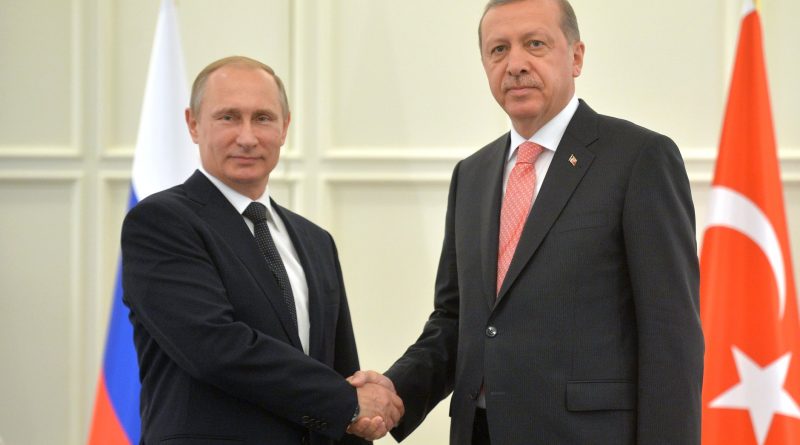10 Things to Read about Turkish-Russian Relations
While the assassination of the Russian Ambassador to Turkey in Ankara would appear not to have hindered the diplomatic ties between Russia and Turkey, we went over a few studies about the relation between the two countries, trying to understand the historical background and mutual benefits of this newly restored partnership.
1. Shattering empires: The clash and collapse of the Ottoman and Russian empires, 1908–1918 (2011)
This book, written by Michael Reynolds, focuses on the unravelling of the Ottoman and Russian empires, two events that transformed the landscape of Eurasia and the Middle East, and that must be understood in light of two important factors, namely geopolitical competition, and the rise of a new worldwide interstate order.
2. Stalin and the Turkish Crisis of the Cold War, 1945-1953 (2015)
Jamil Hasanli’s volume is a result of the author’s analysis of declassified materials from the United States, Turkey, and several former Soviet States, and constitutes an effort to explain how the friendly relationship between the URSS and Turkey escalated into enmity, and culminated with the entry of the later country into NATO.
3. The Soviet Union, Turkey and the Cyprus Problem, 1967-1974 (2013)
John Sakkas addresses the stance of the Soviet Union regarding the Cyprus issue in the period under study, arguing that Turkey’s motivations behind the 1974 invasions were restoring the balance of power in Cyprus, and preventing Eastern Mediterranean domination by a Greek-Cypriot axis – aims which the Soviets favored.
4. Turkish–Russian Relations after the Cold War (1992–2002) (2007)
The main argument of this article, written by Şener Aktürk, is that Turkish-Russian collaboration after the Cold War was made possible by the decrease of the Russian threat. Engaging heavily with International Relations theory, the author examines the evolution of that partnership, which he considers a central element of the reconstruction of Central Eurasia, following the fall of the Soviet Union.
5. The warming of Turkish-Russian relations: Motives and implications (2006)
James Warhola explains, in this 2006 work, the fundamental shift in Turkish-Russian relations in the first years of the XXI century, which culminated with Erdogan’s visit to Moscow in 2004, and Putin’s trip to Ankara in the following year. Mutual economic benefits, regional security concerns, and domestic political considerations are pointed out by the author as the motives for this significant diplomatic turn.
6. Eurasian geopolitics and financial crisis: Transforming Russian-Turkish relations from geopolitical rivalry to strategic cooperation (2010)
Authored by Emre İşeri in 2010, this study considers the political ramifications of the recent global economic crisis in Turkish-Russian relations, in light of the decreasing influence of the United States in Eurasia, defending that the two countries will strengthen their ties.
7. Russia and Turkish-Armenian normalization: Competing interests in the south Caucasus (2010)
This article, by Igor Torbakov, suggests that the 2008 Georgian War, while initially motivating Turkish-Armenian reconciliation, has led to a deterioration of Turkey’s relations with Armenia, Azerbaijan, and the United States, an outcome that plays into Russian interests.
8. The Black Sea Region in Modern Russian-Turkish Cooperation: Geo-Strategic Aspect (2015)
Alexandr Druzhinin’s work, published in 2015, addresses Russia’s abandonment of the South Stream gas pipeline in favor of a project which would run into the Turkish Thrace through the Black Sea, reinforcing the geo-strategic significance of the region for the two countries.
9. Turkey and Russia in a shifting global order: cooperation, conflict and asymmetric interdependence in a turbulent region (2015)
Ziya Öniş and Şuhnaz Yılmaz use the partnership between Turkey and Russia as a case study as they address the growing economic interactions between BRIC and ‘near BRIC’ countries in the recent global political economy. As such, the authors conclude that different political outlooks, conflict, and geopolitical rivalry are not necessary obstacles for significant economic interdependence.
10. Transatlantic Rifts Averting a Turkey/Russia Conflict (2016)
This research paper, a result of a Chatham House two-day expert discussion on U.S.-European cooperation, focused on the 2015 downing of a Russian bomber jet by the Turkish Air Force, which led to a collapse of the relations between the two countries. Faced with rising Turkish-Russian tensions, it was argued that the transatlantic unity would not be seriously threatened.
Russian President Vladimir Putin and Turkish President Recep Tayyip Erdoğan. Photo by Kremlin.ru / CC BY 4.0
![]() This work is licensed under a Creative Commons Attribution-NonCommercial-ShareAlike 4.0 International License.
This work is licensed under a Creative Commons Attribution-NonCommercial-ShareAlike 4.0 International License.




